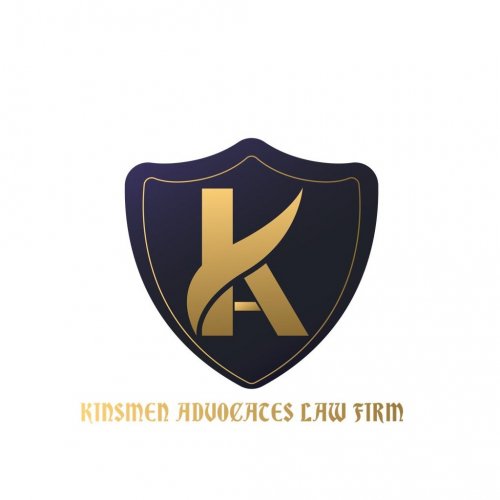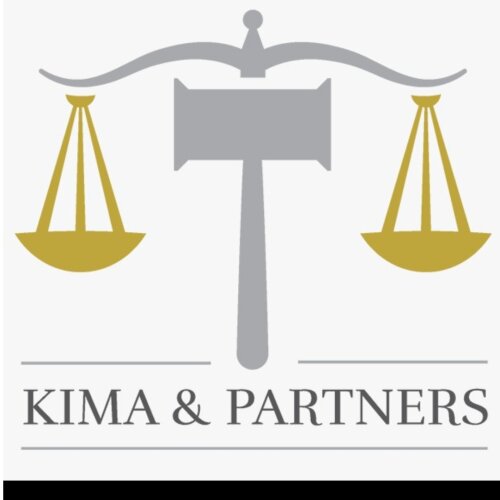Best Sanctions & Export Controls Lawyers in Buea
Share your needs with us, get contacted by law firms.
Free. Takes 2 min.
List of the best lawyers in Buea, Cameroon
About Sanctions & Export Controls Law in Buea, Cameroon
Sanctions and export controls law refers to the regulations and legal restrictions governing the transfer of goods, technology, and services across borders, as well as specific prohibitions or barriers imposed on certain countries, entities, or individuals. In Buea, Cameroon, these laws are shaped by both domestic statutes and Cameroon's commitments to regional and international frameworks such as the United Nations Security Council Resolutions and the African Union's policies. Sanctions can involve embargoes or trade restrictions placed due to political, security, or human rights concerns. Export controls are designed to manage and monitor the spread of sensitive goods and technologies which could have military or dual-use applications.
Why You May Need a Lawyer
Seeking legal counsel in sanctions and export controls is essential for individuals and businesses engaged in international trade, finance, or technology transfer. Common scenarios where legal help may be necessary include:
- Ensuring compliance with Cameroonian and international sanctions lists before engaging in overseas transactions.
- Understanding the licensing requirements for exporting goods and technology from Cameroon to other countries.
- Defending against accusations of violating export controls or sanctions laws, which may result in severe penalties or criminal proceedings.
- Guidance on interacting with entities subject to sanctions or embargoes, to avoid permitting prohibited transactions.
- Clarifying how changes in EU, US, or global sanctions policies impact local businesses operating in Buea.
- Representation in government investigations or audits related to cross-border trade activities.
Local Laws Overview
In Cameroon, including Buea, sanctions and export controls are governed by a mix of local legislation, regional integration commitments, and international treaty obligations. Key legal aspects include:
- The Customs Code sets out the basic legal framework for import and export activities, including restrictive measures on certain goods.
- The Organization for the Harmonization of Business Law in Africa (OHADA) Treaty shapes the legal environment for business practices, including those involving cross-border trade.
- National decrees and ministerial regulations may impose specific sanctions or restrictions in accordance with United Nations or African Union mandates.
- Certain goods, such as military or dual-use technology, require export licenses from the Ministry of Trade or other competent authorities.
- Stringent penalties, including heavy fines and imprisonment, can be imposed on violators of sanctions or export laws.
- International cooperation frameworks mandate that Cameroon aligns its rules with those of major global partners, meaning compliance requirements can shift rapidly.
Frequently Asked Questions
What is the difference between sanctions and export controls?
Sanctions are broad measures, often imposed by governments or international bodies, that restrict transactions with certain countries, people, or entities. Export controls are specific regulations that control what goods, technology, or services can be sent abroad and to whom, usually based on security or foreign policy reasons.
How do I know if a product I want to export from Buea requires a special license?
You should check the Cameroonian Customs Code and consult with the Ministry of Trade, as some items, especially high-technology goods or those with military applications, require explicit licenses. An experienced lawyer can help identify applicable restrictions.
What are the penalties for violating sanctions or export controls in Cameroon?
Penalties can include severe fines, confiscation of goods, loss of business licenses, and even imprisonment, depending on the nature and severity of the offense.
How do UN or African Union sanctions affect businesses in Buea?
When Cameroon adopts international sanctions, local individuals and businesses are legally bound to comply. This can include outright prohibitions on trade with certain entities or requirements to freeze assets.
Are there any goods entirely prohibited from export or import in Cameroon?
Yes, specific items such as narcotics, certain chemicals, and military equipment may be strictly controlled or banned under national and international laws.
Can I appeal a government decision to deny my export license?
Yes, there are legal procedures for challenging or appealing administrative decisions regarding export licensing. A qualified lawyer can assist with preparing and presenting your case.
How can a lawyer help me with compliance?
A lawyer can provide comprehensive compliance programs, conduct internal audits, review contracts for sanctions risks, and offer ongoing advice to ensure you remain within the law.
Is advice from foreign lawyers sufficient for Cameroon sanctions and export law?
No, because Cameroon's legal system and regulatory environment have unique aspects that require local expertise. Consulting a lawyer familiar with Cameroonian law is necessary to ensure compliance.
What should I do if contacted by government authorities about a potential violation?
Do not make statements or provide documents without first consulting a lawyer. Legal counsel protects your rights and helps you respond appropriately to investigations or inquiries.
Do small businesses need to worry about sanctions and export controls?
Yes. Even small-scale operations can be held liable for violations, especially if their goods or services cross national borders or involve foreign partners.
Additional Resources
For further information and assistance, you may consider the following key institutions and resources in Buea and Cameroon:
- Cameroon Customs Authority - for import and export regulations
- Ministry of Trade - oversees licensing and trade compliance matters
- Inter-ministerial Committee on Sanctions Compliance - coordinates enforcement of international sanctions
- Cameroonian Bar Association - for lawyer referrals and guidance
- OHADA National Commission - for business law harmonization guidance
- Local chambers of commerce - provide trade and compliance seminars and advice
Next Steps
If you believe you need assistance with sanctions or export controls issues in Buea, Cameroon, consider these steps:
- Identify the specific goods, transactions, or activities you are concerned about.
- Gather all relevant documentation, such as contracts, licenses, and correspondence with authorities.
- Contact a qualified lawyer with specialized experience in sanctions and export controls law.
- Request a compliance review or legal audit if your business regularly handles cross-border trade.
- Stay informed about updates to local, regional, and international laws that may impact your operations.
Prompt legal guidance can help you navigate complicated sanctions and export control regimes, avoid costly penalties, and maintain lawful and successful trade activities.
Lawzana helps you find the best lawyers and law firms in Buea through a curated and pre-screened list of qualified legal professionals. Our platform offers rankings and detailed profiles of attorneys and law firms, allowing you to compare based on practice areas, including Sanctions & Export Controls, experience, and client feedback.
Each profile includes a description of the firm's areas of practice, client reviews, team members and partners, year of establishment, spoken languages, office locations, contact information, social media presence, and any published articles or resources. Most firms on our platform speak English and are experienced in both local and international legal matters.
Get a quote from top-rated law firms in Buea, Cameroon — quickly, securely, and without unnecessary hassle.
Disclaimer:
The information provided on this page is for general informational purposes only and does not constitute legal advice. While we strive to ensure the accuracy and relevance of the content, legal information may change over time, and interpretations of the law can vary. You should always consult with a qualified legal professional for advice specific to your situation.
We disclaim all liability for actions taken or not taken based on the content of this page. If you believe any information is incorrect or outdated, please contact us, and we will review and update it where appropriate.










